Lindaman says touch was meant to help ‘sexually injured’ teenager
Retrial begins on sex abuse charges
By Mira Schmitt-Cash, For the Press
Opening statements began Thursday afternoon in Franklin County in the retrial of a Charles City man on a sex abuse charge following a change of venue due to pretrial publicity.
County Attorney Rachel Ginbey said the evidence would show that Douglas Lindaman, 62, committed third-degree sexual abuse on a 17-year-old boy in 2011 in Floyd County by touching the boy’s penis with his hand, against the boy’s will.
Charges were filed in 2015 and Lindaman was found guilty in Floyd County District Court after a jury trial in 2016. He was sentenced to up to 10 years in prison, but appealed and the Iowa Supreme Court overturned the conviction and sent the case back for retrial.
The original trial was overturned on the grounds that the district court did not adequately ensure that Lindaman knew the consequences of his decision when he decided to defend himself in court.
William Morrison, an attorney from Mason City, is assisting Lindaman in his defense this time.
In 2011, Ginbey said, the alleged victim was a normal 17-year-old. He liked to socialize and was active outdoors. He lived with his family in rural Charles City.
Not long before spring break of 2011, the victim went with his father and brother to various local farm places looking for scrap metal to sell to support the family. They stopped at the defendant’s farmstead, also in rural Charles City.
The defendant didn’t have any scrap metal but said he was willing to hire both boys. The boys were excited to work on the farm, drive tractors and earn money.
Soon after starting work for the defendant, things started to get weird, Ginbey said. Lindaman made the boys uncomfortable by asking about their sexual experiences and sharing sexual information about himself.
Lindaman became more touchy-feely with the boys, Ginbey said. He would come up behind them on the tractor and massage their shoulders.
Lindaman also did various nice things for the family, such as giving their family a washing machine, after the boys indicated a need for one. He also arranged to get both the boys dirt bikes.
Lindaman also noticed that the victim had scars on his back and chest so he ordered some oil to be applied four times a day to heal the scars. The victim was uneasy but ultimately agreed to let Lindaman put the oil on him. This continued for several weeks.
“The defendant continued this behavior until he thought he could move forward with (the boy),” Ginbey said. She said the victim would describe how tLindaman took him to a stone outbuilding that had what used to be an upstairs apartment with a bed. Lindaman put the oil on the victim’s back and chest and then said he needed to see the victim’s penis to make sure it was healthy.
The victim at first resisted. He ultimately said, “OK, you can look at my penis but you can’t touch it,” Ginbey said. The defendant then told the victim to close his eyes and think of naked girls. The defendant then, against the victim’s wishes, touched the boy’s penis, according to Ginbey. The victim told the defendant “No!” Ginbey said.
Ginbey said a second touch of the victim’s penis occurred, which Lindaman disputes.
“(The victim) gets his pants up, he’s scared,” Ginbey said. “This 17-year-old kid, he doesn’t know what to do.” Later the boy told his brother what happened, and the boys’ mother overheard part of the conversation and told her husband the defendant had been doing something to their boys, Ginbey said.
The boys didn’t go back to work after this happened, Ginbey said.
Lindaman showed up at their residence looking for the boys. The victim’s brother fetched their dad, who confronted him outdoors. The father told Lindaman he wanted money, that he wanted him to pay for what he had done to the boys. The defendant left, and returned with a typed agreement to sign, and he wrote a check for $3,000 and wrote “car parts” in the memo line.
A Division of Criminal Investigations special agent traveled to Charles City to investigate. He interviewed the defendant on June 29, 2011. On June 29, the defendant denied ever having done anything to the boys.
The following day, June 30, 2011, the defendant said, according to Ginbey, that he had touched the boy and the boy had told him not to.
“The defendant says that he was justified and continues to explain to the agent why he thinks he was justified” in touching the boy.
“The state is confident that as all of this evidence is introduced, as you hear the testimony, listen to the interviews, you will find that the state has met its burden (of proof) and that you will find the defendant is guilty as charged in the crime of sexual abuse third degree.”
She rested her opening argument within ten minutes.
Lindaman opened arguments in his own defense by saying the county attorney did not give all the facts in her opening statement for the prosecution.
In an opening statement that lasted about an hour, Lindaman detailed the reasons he said inspired him to touch the victim, and argued that the touch was not sexual.
Lindaman said optical illusions, drawings that can be seen as two separate things depending on one’s view, form a metaphor for his case.
“This case is like those three pictures. Depending how you look at it, you’re going to have a different outcome for a conclusion as to what went on,” Lindaman said.
He outlined issues the jury should focus on.
“The first one is going to be the tap of the penis. In the written statements or depositions it was just one tap. A mere tap of the penis, is that a sex act?” He went on to use clinical terms for five types of sex acts.
Later, Ginbey objected to Lindaman again describing five types of sex acts because they were not legal definitions. Judge Gregg Rosenbladt said the jury should focus on legal definitions, to be given later in the trial.
“There’s always the question, why did it occur?” Lindaman said. Lindaman considered his approach of “sexual psychology” to be “an intervention. I saw a problem with regard to (the victim).”
He alleges the victim was a “sexually injured person” based on the following:
“Whenever I would ask him a question he would freeze like a statue, be nonverbal — contrary to what the county attorney is saying, he was nonverbal, he didn’t want the family to touch him, third, he shut down his brother whenever there was talk of girls, some type of aversion, and, he made the statement, ‘Don’t touch my penis,’ not in the apartment, but weeks before in a car. … he’ll admit, I never touched his penis in that car.”
Lindaman said he diagnosed the victim as having “abdominal epilepsy” because Lindaman studies the work of psychic Edgar Casey, who died in 1945.
“With regard to abdominal epilepsy, what bothered me is I gave the family information about abdominal epilepsy after I found out that (the victim) had it. The reason I gave it to him, was that epilepsy causes you to unexpectedly basically collapse.
“I’m putting (the victim) in a 250 horsepower tractor, and I don’t want someone passing out on me that I’ve got the liability. So when they indicated to me that he had an episode with abdominal epilepsy, I found this literature that helped treat it through a back adjustment.”
“Let me jump over here to voluntary acts by (the victim). These acts of putting scar lotion on (him) were voluntary (and) when I adjusted his back because of abdominal epilepsy — which I know you’ve never heard of — was for treatment of that illness, both of those applications were from … Edgar Casey … You’d probably call him in a way a psychic. He would go into a sleep and he would twice a day diagnose what medical problem you had.”
The family did not believe Lindaman’s Casey-style diagnosis of their son, Lindaman said.
“These were voluntary acts which (the victim) will admit took place. He went to that farm apartment, voluntarily dropped his pants, voluntarily dropped his underwear so everything was voluntary up until we had a disagreement between the two of this. My understanding was he consented and it actually helped him but going up there was voluntary.
“He was a sexually injured person. … The state’s experts will confirm to you that if you have a sexually injured party, they’re going to freeze like a statue, they’re going to be nonverbal, and they’re going to have trouble with touch,” Lindaman said.
So as not to have to transport the boy to the farm, Lindaman decided to give him a loan for a dirt bike the boy wanted. The bike cost $700, he had earned $200, and Lindaman advanced him a $500 loan, Lindaman said.
“The prostitution story: He’s going to tell you, in order to get the bike, he had to have me touch his penis or he wouldn’t get the loan. Well, the loan had already been made, the bike had already been purchased,” Lindaman said.
Lindaman said he drove over to the boys’ residence.
The father accused Lindaman of abusing his boys. Lindaman asked for details.
“All he would say was there was contact between me and (the victim),” Lindaman said. “And I submit the contact was quite long. It was done to break him through the repressed sexual abuse that I thought had appeared in his personality.” The father wanted a large sum, Lindaman said. Lindaman refused to pay. He left and replied with a letter that he thought he was being “shook down.”
Lindaman referenced “A text from (the victim),” implied to be in evidence. “The text basically reads, ‘We’re hard up for money. We’ll take $3,000 or we’ll talk to the police,’” Lindaman said.
“Now as I indicated, when I paid that $3,000 in the agreement, it wasn’t because of a sex act, I wasn’t asking for any silence on their part,” Lindaman said. “I was paying because I should have foreseen that I wasn’t providing him with a safe environment. That was my mistake. I didn’t calculate how unfriendly the family may be.”
“I think the family has a very anti-gay attitude (and) that this almost looked gay between (the victim) and myself. It wasn’t,” Lindaman said. “Just because I’m gay, doesn’t mean he was gay… But I think the family looked at it in a very adverse light.
“In that regard, I drafted an agreement which you’ll get, that said that there was no force, no sex act… They all signed it. Why did I pay the $3,000? I made one grave error in sexual analysis. … He went home to an environment that wasn’t friendly, wasn’t supportive. … I didn’t factor that in when I felt I was able to break through that barrier of a repressed memory that I thought he had.”
The agreement with the family indicates it was voluntary, there was no sex act, Lindaman said “and everybody signed it.”
A Division of Criminal Investigation agent came to Lindaman’s farm on June 29 and quizzed him about the “intervention” on May 10. “I said I didn’t touch him … because of the agreement on the 17th, … I shouldn’t be talking about (the victim)’s mental illness … so pursuant to that agreement, I was honoring it,” Lindaman said.
He voluntarily went into the Charles City Police Station on June 30, the following day. Two recordings were made, an audio recording by the DCI agent and a video machine by the police department. “I outlined the reason that I did tap his penis, I outlined the fact that it was non-sexual and I outlined the fact that I believed it was blocked or repressed sexual abuse.”
Lindaman told police the conversation of ‘Don’t touch my penis’ took place two weeks prior to the incident in question on the 10th but did not take place at the apartment.
“I said ‘You’re looking at this as an assault. I was flabbergasted,” Lindaman said. “I thought they were going to look at it as some kind of medical violation, that I was helping him.”
In the June 30, interview, Lindaman alleges that because there is no start time on the CCPD video, but there is on the DCI audio, that the video could have been doctored.
“I’m indicating that there’s about 12 minutes missing,” Lindaman said. “I can recall the ‘don’t touch penis’ attribution to (having occurred) in the car, and that was missing.”
“Now, when I tapped the penis it was with the intent to bring about whatever was bothering him, whatever was there. The only thing he verbalized, that triggered this action was, back in our timeline, early May or April, you’re going to hear testimony, that we were in a car, and I put the scar cream on him. I said ‘Do you want it on your legs?’ He said ‘Just don’t touch my penis.’ I said ‘Fine.’ …
“The point is, when he said ‘Don’t touch my penis’ it wasn’t a statement that was one of fear; it was one of unreasonable terror, he responded in a way that was totally unexpected, and he didn’t verbalize anything else. So when he said ‘Don’t touch the penis,’ it’s critical to this case but it’s critical because it took place in the car some two weeks before, not during intervention. …
“If he had said ‘Don’t touch my ear’ and he couldn’t say anything else, I would have touched his ear, whatever it would take to access what I perceived as a blocked memory of a sexually injured person.”
“He’s going to testify that I sat on the bed and was somehow panting over this, event. I’m going to point out to you, I have a lung ailment. If I go up a flight of stairs, I start losing my breath. A few months later, I had a few tests, and I have what’s called farmer’s lung, too much farm dust, too many farm chemicals. So I have about 50 percent capacity. … I can talk like this because it doesn’t take as much energy, but if I pick up a 5 gallon pail of feed and walk across the room it’s going to catch up with me.”
“He looks at this as if it were a sexual event; it wasn’t,” Lindaman said.
He said many gay people commit suicide when they realize they are gay and are not accepted by family.
“In November 1987, I swung into suicide. I had to admit I was gay at the age of 31. That was extremely painful to me. I couldn’t accept the fact that, I was told, being gay was a mental illness, … a conflict with God, … that I wasn’t healthy.
“All these things, I believed. It took away my normal defense mechanism, and when you lose your defense mechanism, you swing into suicide. I don’t want to see anyone swing into that, anyone that has been sexually injured.”
The trial is scheduled to resume Friday morning.

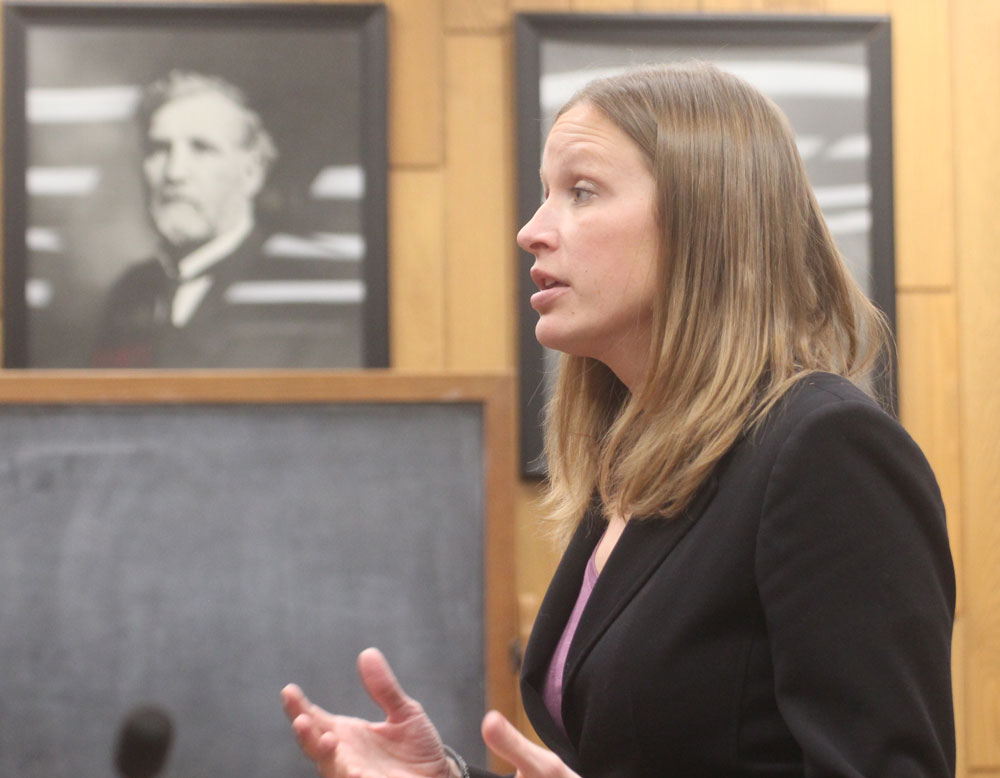
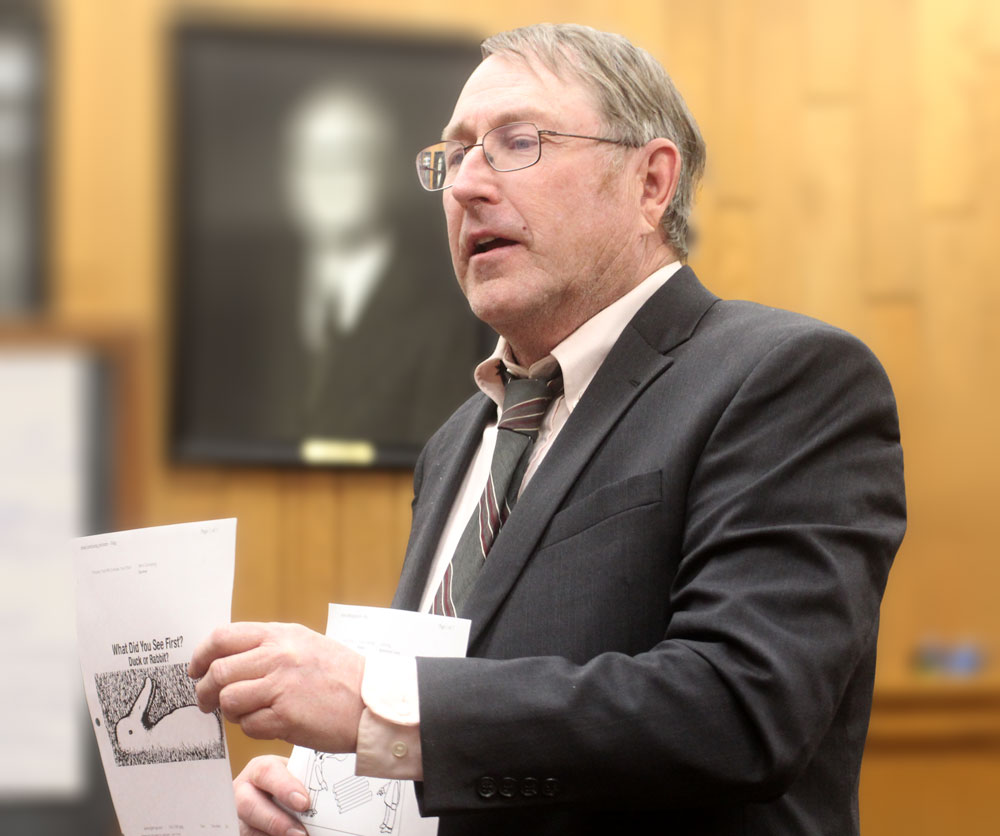

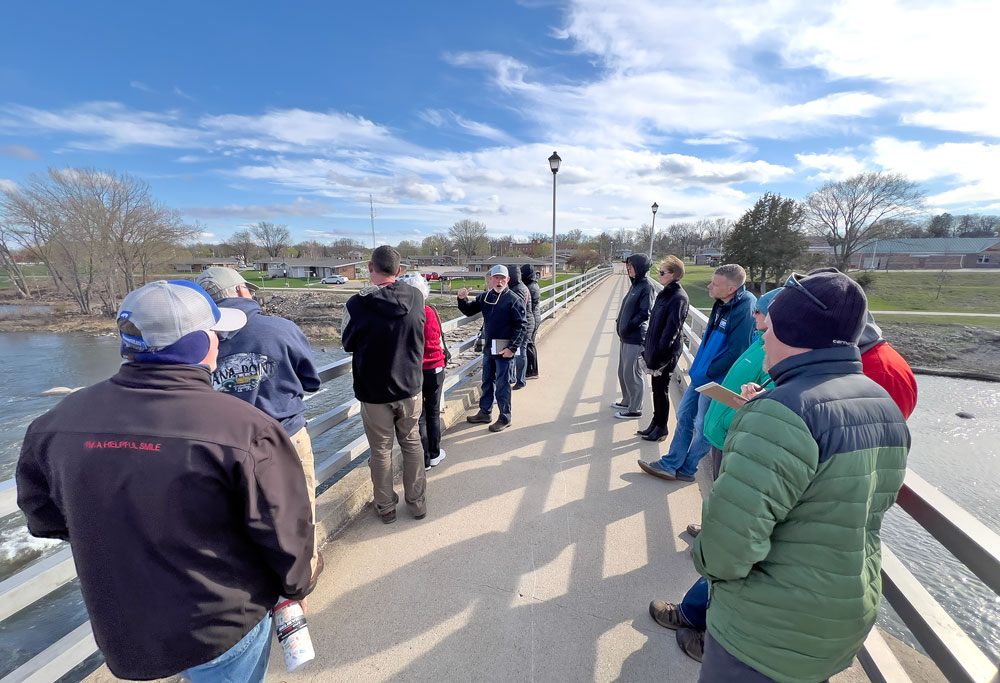
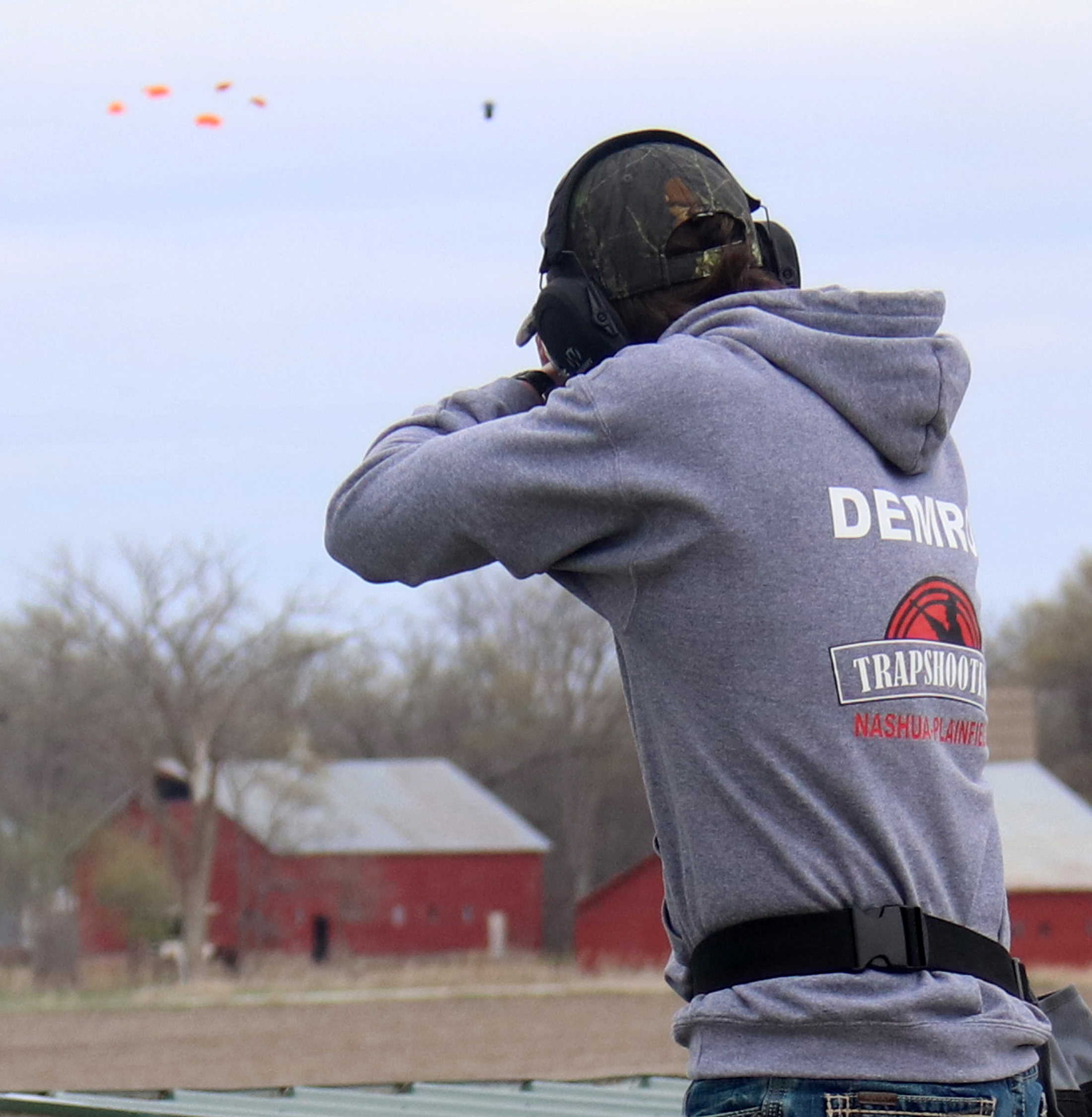
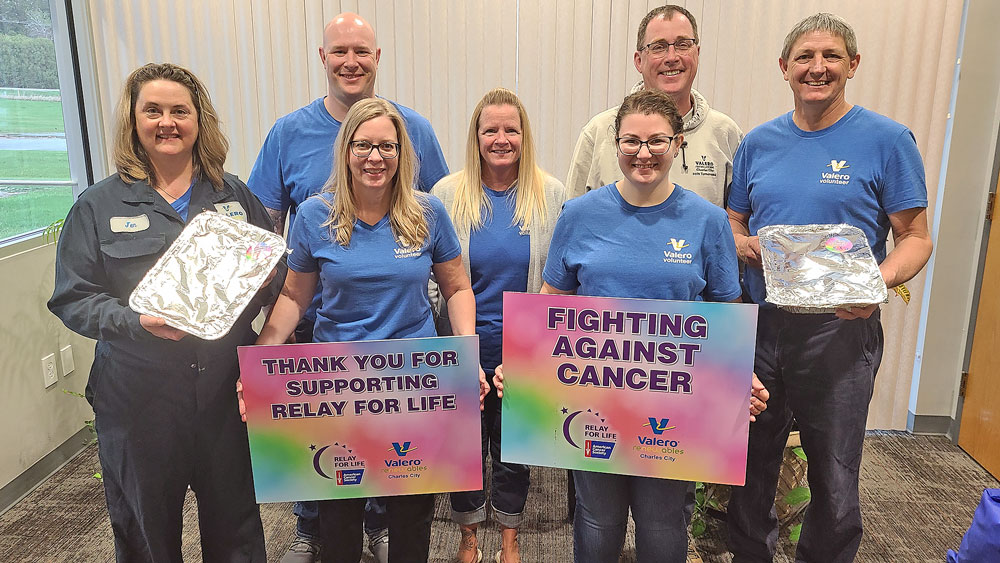


Social Share